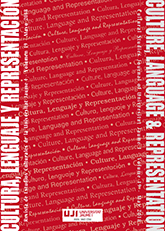Hyper-Eroticism as a Source of Spiritual and Material Agency in Trilogía sucia de La Habana
Main Article Content
Abstract
In Trilogía sucia de La Habana, Pedro Juan Gutiérrez has defied traditional representations of the sexual body in Latin American literature by depicting the erotic as an agent of meditation and multiplication within an environment of deprivation. The author explores the diverse ways in which the erotic is a means by which to deconstruct subjectivity and provide a political critique against social oppression. The narration is situated within a socialist Cuban context of surveillance during the special period, and depicts the many acts of survival its citizens engage in on a daily basis amidst an economic crisis where basic products are scarce. With the absence of material goods, as well as certain political freedoms, the characters in the novel manifest their continuous desires by engaging in a hyper-production of the erotic as a source of power. While recounting personal stories of love and sex, the characters meditate on their social condition in addition to their own private desires. Ultimately, in accord with eroticism as a weapon of social change and critique, Pedro Juan Gutiérrez acknowledges the body traditionally dismissed in dominant Western thought and inscribes new representations where it can be beautiful while being impoverished, artistically tormented and imperfect. Subsequently, this paper analyses hyper-eroticism as a source of reflection and material agency, leading to new inscriptions of erotic potential as a source for social change.
Downloads
Article Details
An open-access CREATIVE COMMONS copyright license is used. Those authors whose works are published by this journal, accept the following terms:
- Authors will retain their copyright and guarantee the Journal the right to first publish their work, which will simultaneously be subject to the Creative Commons Recognition License CC BY SA that allows third parties to share the work, provided that its author and first publication is indicated.
- Authors may adopt other non-exclusive license agreements for the distribution of the published version of the work (e.g., deposit it in an institutional telematics file or publish it in a monographic volume) provided that the initial publication in this journal is indicated.
- Authors are allowed and recommended to disseminate their work over the Internet (e.g. in institutional telematics files or on their website) before and during the submission process, which can produce interesting exchanges and increase quotes of the published work.
References
BRENNAN, D. (2004): What’s Love Got to Do with It? Transnational Desires and Sex Tourism in the Dominican Republic, Durham, Duke University Press.
BUTLER, J. (1988): «Performative Acts and Gender Constitution: An Essay in Phenomenology and Feminist Theory», Theatre Journal 40.4: 519-531.
GUTIÉRREZ, P.J. (1998): Trilogía sucia de La Habana, Barcelona, Editorial Anagrama.
LORDE, A. (1984): Sister Outsider: Essays and Speeches, New York, Crossing Press.
MAHON, A. (2005): Eroticism and Art, Oxford, Oxford University Press.
MOSES, C. (2000): Real Life in Castro’s Cuba, Wilmington, A Scholarly Resources Inc. Imprint.
SANDOVAL, C. (2000): Methodology of the Oppressed, Minneapolis, University of Minnesota Press.
SPELMAN, E.V. (1999): «Woman as Body: Ancient and Contemporary Views» in PRICE, J.; M. SHRLDRICK (eds.) (1999): Feminist Theory and the Body: A Reader, New York, Routledge. 32-41.


